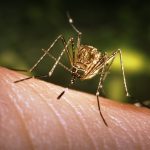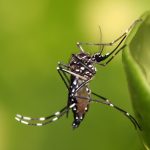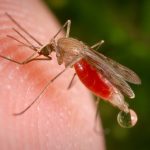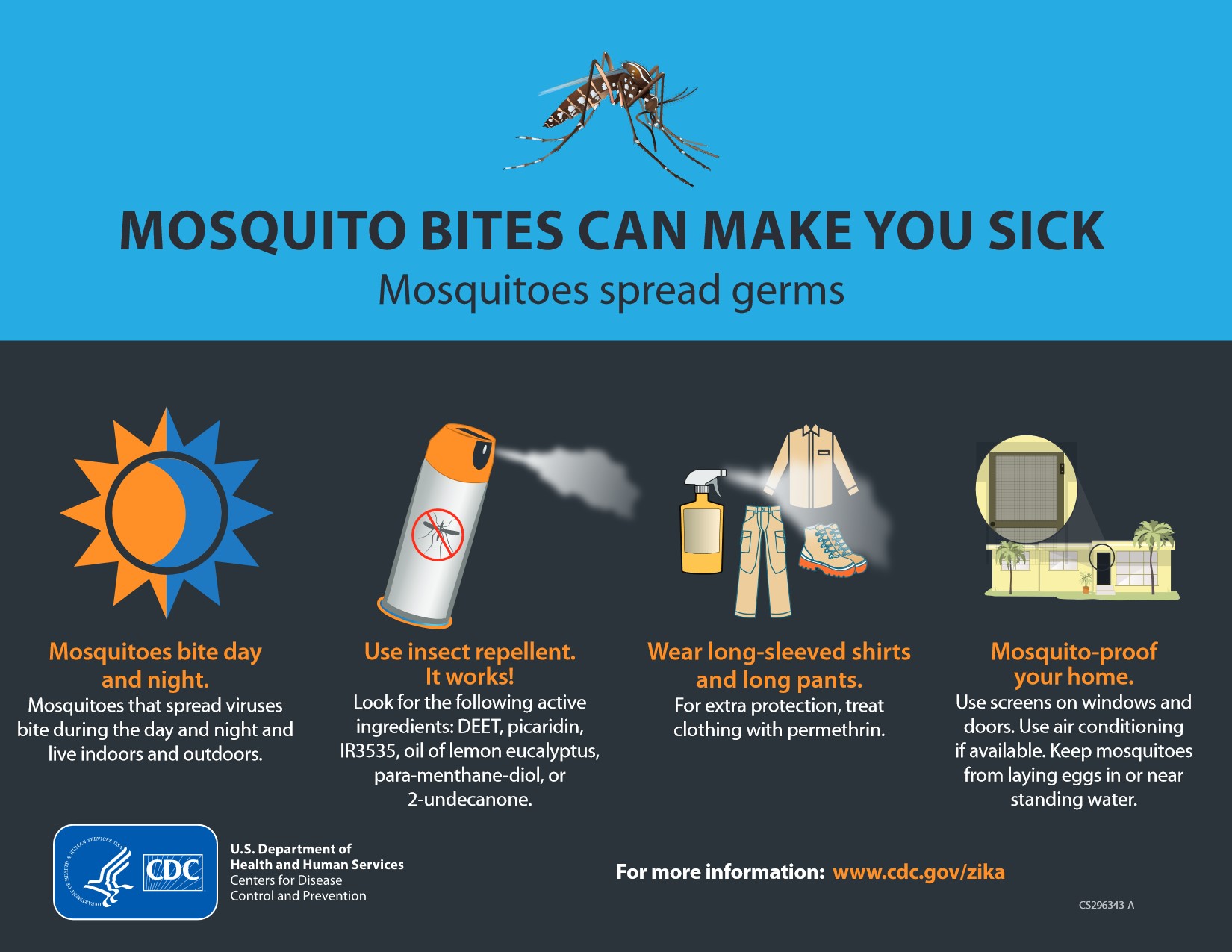MOSQUITOES OF THE PACIFIC SOUTHWEST
More than 50 species of mosquitoes occur in the Pacific Southwest, but only a number of species commonly carry and spread pathogens that poses a threat to human health. The most common groups of mosquitoes that are of major concern in the Pacific Southwest are Culex, Aedes, and Anopheles.
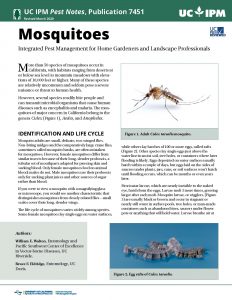 Integrated Pest Management Guide for Home Gardeners and Landscape Professionals
Integrated Pest Management Guide for Home Gardeners and Landscape Professionals
Authors: PacVec Co-PI William Walton and Entomology Professor Bruce F. Eldridge
Babies and Children:
- Dress your child in clothing that covers arms and legs.
- Cover strollers and baby carriers with mosquito netting.
Adults:
- Wear long pants and long-sleeved shirts.
- Use 0.5% permethrin to treat clothing and gear (such as boots, pants, socks, and tents) or buy permethrin-treated clothing and gear.
- Permethrin is an insecticide that kills or repels mosquitoes.
- Permethrin-treated clothing provides protection after multiple washings.
- Read product information to find out how long the protection will last.
- If treating items yourself, follow the product instructions.
- Do not use permethrin products directly on skin.
- Watch the video: What You Need to Know About Permethrin.
Use Environmental Protection Agency (EPA)-registered insect repellents with one of the active ingredients below:
- DEET
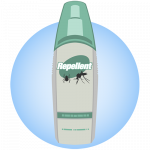
- Picaridin (known as KBR 3023 and icaridin outside the US)
- IR3535
- Oil of lemon eucalyptus (OLE)
- Para-menthane-diol (PMD)
- 2-undecanone
When used as directed, EPA-registered insect repellents are proven safe and effective, even for pregnant and breastfeeding women. Find the right insect repellent for you by using EPA’s search tool external.
The EPA recommends several precautions when using insect repellents:
- Always follow product label instructions.
- Reapply insect repellent as directed.
- Do not spray repellent on the skin under clothing.
- If you are using sunscreen, apply sunscreen first and insect repellent second.
- Do not apply repellents over cuts or irritated skin.
- Never spray repellents directly onto your face; apply the repellent onto your hands first, then use your hands to apply the product sparingly onto your face and head.
- A small amount of repellent is sufficient to effectively deter mosquitoes.
- After returning indoors, wash treated areas with soap and water.
- If you develop a rash after using a repellent, wash the affected area with mild soap and water and seek guidance from a physician or poison control center.
- Never let children handle repellents.
When using insect repellent on your child:
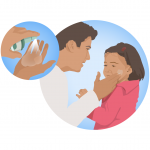
- Always follow product label instructions.
- Do not use products containing oil of lemon eucalyptus (OLE) or para-menthane-diol (PMD) on children under 3 years old.
- Do not apply insect repellent to a child’s hands, eyes, mouth, cuts, or irritated skin.
- Adults: Spray insect repellent onto your hands and then apply to a child’s face.
- Remove Standing Water
- Once a week, empty and scrub, turn over, cover, or throw out any items that hold water like tires, buckets, planters, toys, pools, birdbaths, flowerpot saucers, or trash containers. Mosquitoes lay eggs near water.
- Clean gutters and downspouts: Leaves, twigs, seeds, and other organic matter that block water flow can create standing water in which mosquito larvae can grow.
- Checklist of possible mosquito sources outside of your home:
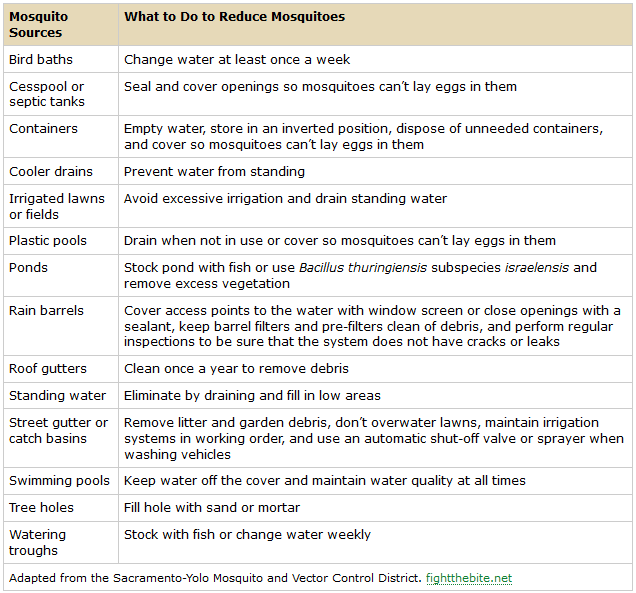
- Use Insecticide
- Use larvicides to treat large bodies of water that will not be used for drinking and cannot be covered or dumped out.
- Use outdoor adulticide to kill adult mosquitoes in areas where they rest. Mosquitoes rest in dark, humid areas like under patio furniture or under the carport or garage.
- When using insecticides, always follow label instructions.
- Remove Standing Water
- Once a week, empty and scrub, turn over, cover, or throw out any items that hold water, such as vases or flowerpot saucers, to remove mosquito eggs and larvae.
- Once a week, empty and scrub, turn over, cover, or throw out any items that hold water, such as vases or flowerpot saucers, to remove mosquito eggs and larvae.
-
Keeping Mosquitoes Out of Your Home
- Install or repair and use window and door screens.
- Close doors, including garage doors. Do not leave doors propped open.
- Use air conditioning when possible.
- Use Insecticide
- Use an indoor insecticide if you still have mosquitoes in your home after installing and repairing screens and emptying and scrubbing containers.
- An indoor insect spray or fogger will kill mosquitoes and treat areas where they rest.
- These products work quickly but may need to be reapplied.
- Always follow label directions.
- Using only an indoor insecticide will not keep your home free of mosquitoes.
Click on the items below to explore the resources they provide:
 California Department of Public Health (CDPH)
California Department of Public Health (CDPH)
- Mosquitoes & Mosquito-Borne Diseases
- Mosquito Surveillance and Control Information
- Educational Materials
- Information for Health Professionals
 Centers for Disease Control and Prevention (CDC)
Centers for Disease Control and Prevention (CDC)
 The Pacific Southwest Center of Excellence in Vector-Borne Diseases (PacVec)
The Pacific Southwest Center of Excellence in Vector-Borne Diseases (PacVec)
- KQED Deep Look: This Dangerous Mosquito Lays Her Armored Eggs – in Your House
PacVec scientists at UC Davis worked with KQED Science’s Deep Look team to reveal an amazing close-up view of the biology of Aedes aegypti, an invasive species which continues to spread in our region.
